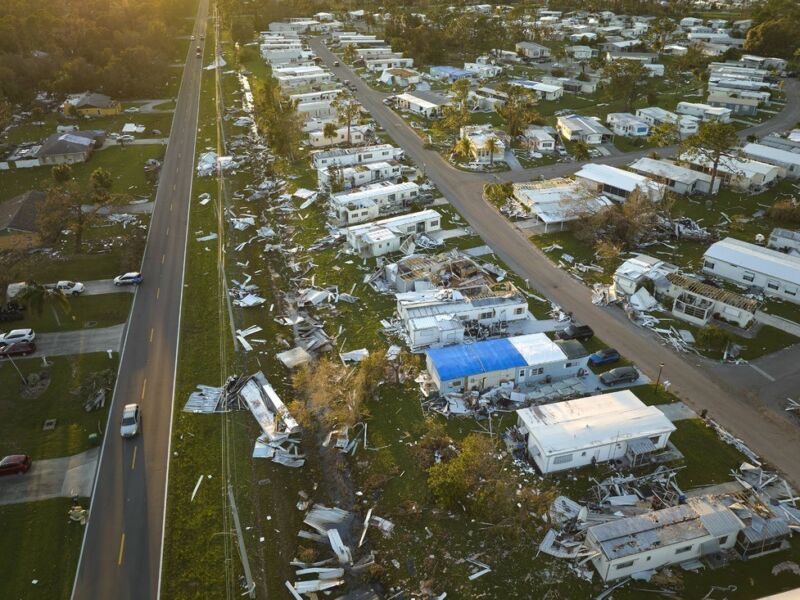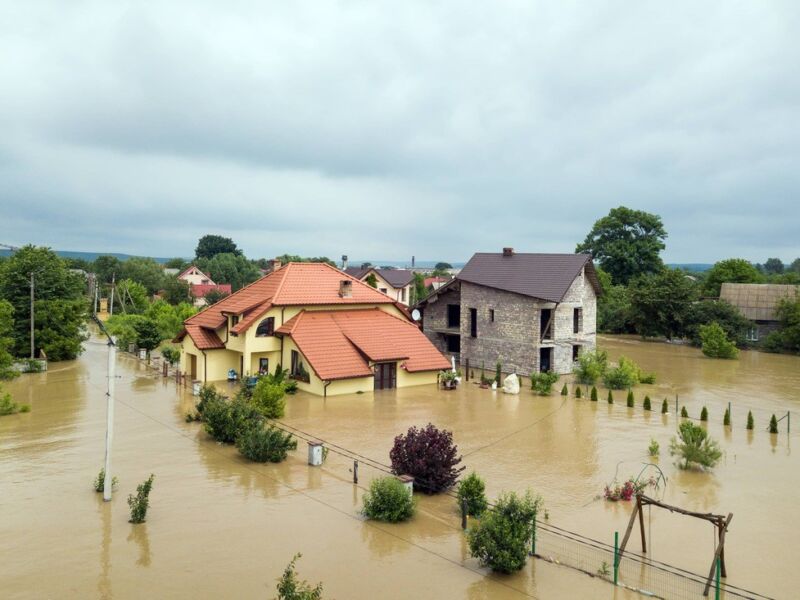
Emergency Preparedness Audits: Ensuring Readiness for Disasters and Emergencies
Disasters and emergencies can strike at any moment, posing a significant threat to lives, property, and businesses. In order to mitigate these risks and ensure the safety of individuals and the continuity of operations, it is crucial for organizations to have robust emergency preparedness plans in place. One important aspect of these plans is conducting regular emergency preparedness audits. This comprehensive assessment evaluates an organization’s readiness for emergencies and identifies areas that require improvement. In this article, we will explore the importance of emergency preparedness audits, the process involved, and how they help organizations be ready for disasters and emergencies.
The Importance of Emergency Preparedness Audits

Emergency preparedness audits are an essential tool for organizations to assess their level of preparedness for disasters and emergencies. They help identify gaps in emergency response procedures, training, resources, and communication systems. By conducting regular audits, organizations can ensure that their emergency plans are up-to-date, effective, and aligned with best practices. Here are some key reasons why emergency preparedness audits are crucial:
1. Identifying Vulnerabilities
An emergency preparedness audit helps organizations identify vulnerabilities in their infrastructure, operations, and processes that could impact their ability to respond effectively to emergencies. By pinpointing these weak points, organizations can take proactive measures to strengthen their preparedness and reduce potential risks.
2. Assessing Response Capabilities
During an emergency, the ability to respond quickly and effectively can make a significant difference in minimizing damage and saving lives. Emergency preparedness audits evaluate an organization’s response capabilities, such as emergency procedures, communication systems, evacuation plans, and resource availability. This assessment ensures that the organization is equipped to handle various scenarios and can respond appropriately in high-stress situations.

3. Ensuring Compliance
Depending on the industry and location, organizations may be required by law or regulation to have specific emergency preparedness measures in place. Emergency preparedness audits help organizations ensure compliance with relevant standards, codes, and regulations. By meeting these requirements, organizations not only avoid legal penalties but also demonstrate their commitment to safeguarding their employees, customers, and stakeholders.
4. Enhancing Business Continuity
Disasters and emergencies can disrupt business operations, resulting in significant financial losses. Emergency preparedness audits assess the organization’s ability to maintain essential functions during and after a crisis. By identifying critical business processes, establishing backup systems, and developing continuity plans, organizations can minimize the impact of emergencies on their operations and expedite the recovery process.
5. Promoting Employee Safety and Well-being
An emergency preparedness audit also examines the organization’s commitment to employee safety and well-being during emergencies. It ensures that proper training and resources are provided to employees, empowering them to respond appropriately in emergency situations. By prioritizing employee safety, organizations create a culture of preparedness and resilience.
The Process of Emergency Preparedness Audits
The process of conducting an emergency preparedness audit typically involves several stages to comprehensively assess an organization’s readiness. Here are the key steps involved:
1. Planning
The first step is to establish a clear plan for conducting the audit. This includes defining the scope, objectives, and timelines. It is important to involve key stakeholders, such as management, security personnel, and emergency response teams, to ensure a comprehensive evaluation.
2. Information Gathering
During this stage, relevant information and documentation related to emergency preparedness are collected. This includes emergency response plans, communication protocols, training records, risk assessments, and previous incident reports. Gathering this information provides a baseline for the audit and helps identify areas that require further examination.
3. On-Site Assessment
In the on-site assessment phase, auditors visit the organization’s premises to evaluate the physical infrastructure, emergency systems, and response capabilities. This may involve inspecting emergency exits, evaluating the functionality of fire alarm systems, assessing the adequacy of evacuation routes, and conducting interviews with key personnel.
4. Documentation Review
After the on-site assessment, auditors review the gathered information and compare it against industry best practices, regulatory requirements, and internal policies. They analyze the organization’s emergency preparedness documentation, including policies, procedures, training materials, and incident response plans. This review helps identify any discrepancies and areas for improvement.
5. Gap Analysis
Based on the information gathered and the documentation review, auditors perform a gap analysis to identify areas where the organization does not meet the desired level of preparedness. This analysis highlights specific weaknesses or deficiencies in the emergency preparedness plan and provides recommendations for improvement.
6. Reporting and Recommendations
The final step involves preparing a comprehensive audit report that summarizes the findings, identifies non-compliance issues, and provides recommendations for enhancing the organization’s emergency preparedness. This report serves as the basis for implementing necessary improvements and corrective actions.
How Emergency Preparedness Audits Help Organizations
Emergency preparedness audits offer numerous benefits to organizations of all sizes and sectors. Here are some ways in which these audits help organizations be better prepared for disasters and emergencies:
1. Improved Emergency Response
By identifying gaps in emergency response procedures and capabilities, organizations can make necessary improvements to their plans. This leads to more effective and coordinated responses during emergencies, resulting in reduced damage and increased safety.
2. Enhanced Risk Management
Emergency preparedness audits help organizations assess and mitigate risks associated with emergencies. By understanding vulnerabilities and implementing necessary measures to address them, organizations can proactively manage risks and minimize the potential impact of disasters on their operations.
3. Compliance with Regulations
Complying with relevant regulations and standards is essential for organizations to operate legally and responsibly. Emergency preparedness audits ensure that organizations meet these requirements and maintain a safe working environment for their employees and stakeholders.
4. Optimal Resource Allocation
Emergency preparedness audits help organizations optimize the allocation of resources, both human and financial. By identifying areas that require improvement, organizations can allocate resources more effectively to enhance their emergency response capabilities and ensure that they are investing in the right areas.
5. Confidence and Peace of Mind
Knowing that their emergency preparedness plans have been thoroughly evaluated and updated through regular audits provides organizations with confidence and peace of mind. They know that they have taken all necessary steps to protect their employees, customers, and assets in the event of a disaster or emergency.
Frequently Asked Questions (FAQs)
Q: Why are emergency preparedness audits important?
Emergency preparedness audits are important because they help organizations evaluate their readiness for disasters and emergencies. These audits identify vulnerabilities, assess response capabilities, ensure compliance, enhance business continuity, and promote employee safety and well-being.
Q: What is the process of conducting an emergency preparedness audit?
The process of conducting an emergency preparedness audit typically involves planning, information gathering, on-site assessment, documentation review, gap analysis, and reporting with recommendations. This comprehensive approach ensures a thorough evaluation of an organization’s emergency preparedness.
Important Facts and Statistics about Storm and Disaster Restoration
Here are some important facts and statistics related to storm and disaster restoration:
- The Federal Emergency Management Agency (FEMA) has declared a disaster in Fort Bend, Harris, or Montgomery counties — the three most populous counties in Greater Houston — 26 times in the past 41 years, including the most recent severe winter storm in February 2021. source
- The top five most damaging storms of 2018 and 2019 were: Hurricanes Michael, Florence, Harvey, Maria, and Irma. source
- The water damage restoration industry is expected to grow at a CAGR of 6.8% from 2020 to 2025. source
By being aware of these facts and statistics, organizations can understand the importance of storm and disaster restoration and the need for effective emergency preparedness.
Emergency preparedness audits play a vital role in helping organizations assess their readiness for disasters and emergencies. By identifying vulnerabilities, assessing response capabilities, and ensuring compliance, organizations can enhance their overall preparedness. Conducting regular audits ensures that emergency plans are up-to-date and aligned with best practices, enabling organizations to effectively respond to crises and protect lives and assets. If you need assistance with emergency restoration in the Deerfield Beach area, contact JGW Group Water Damage Restoration Deerfield Beach at 754-294-5720.



